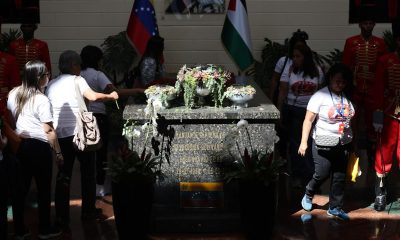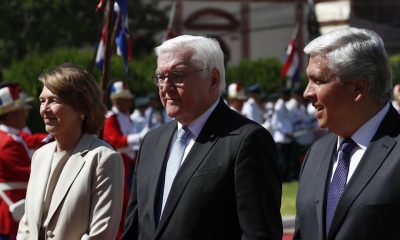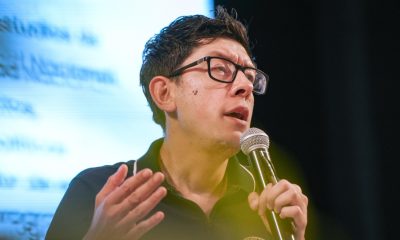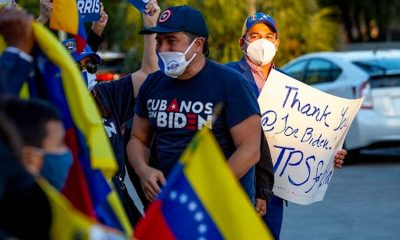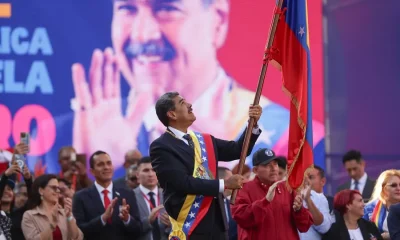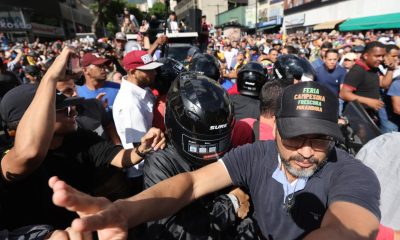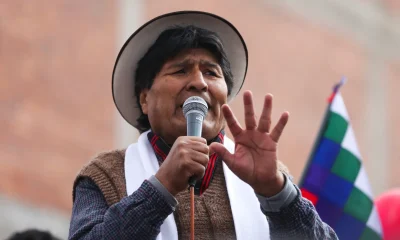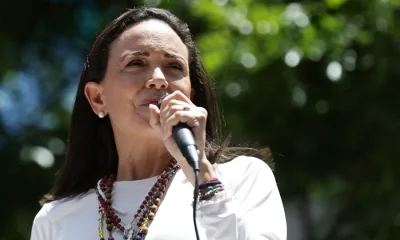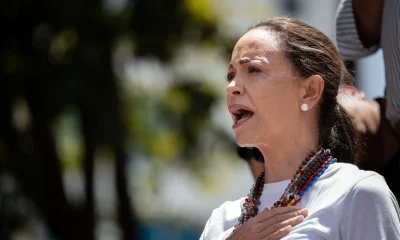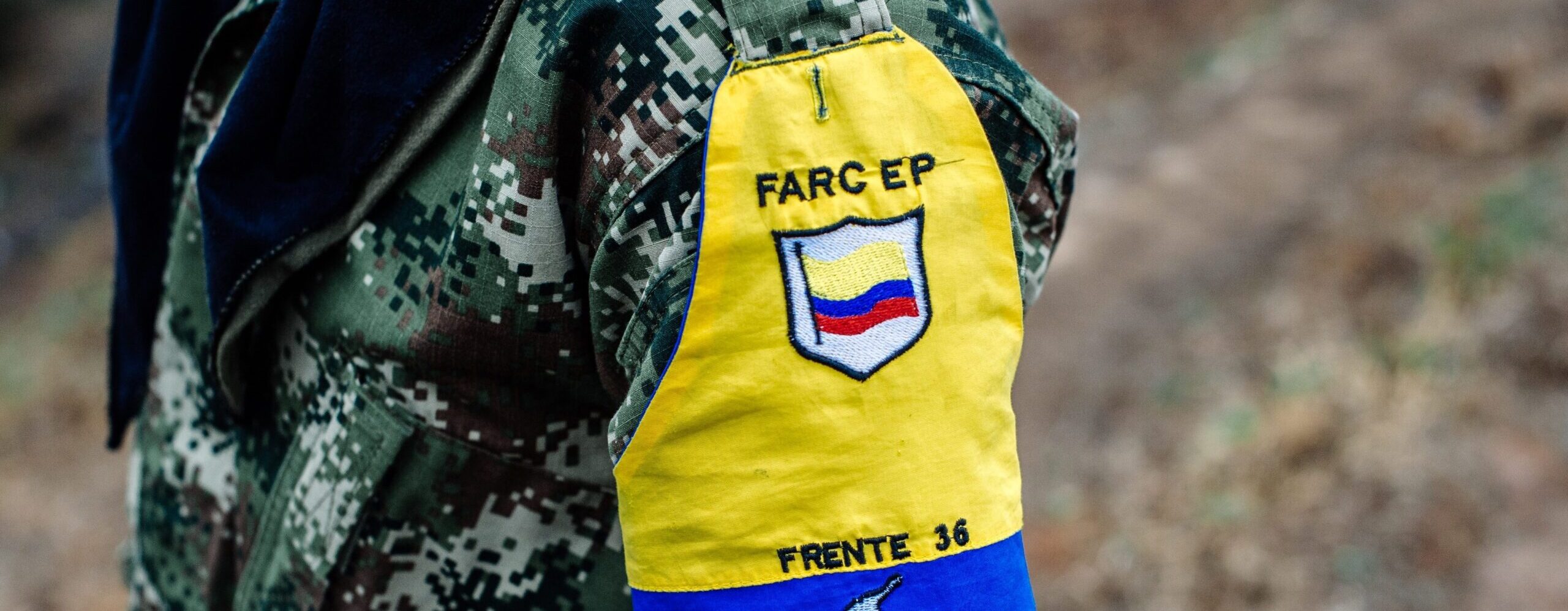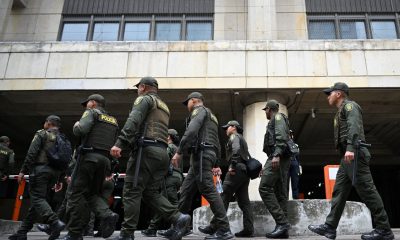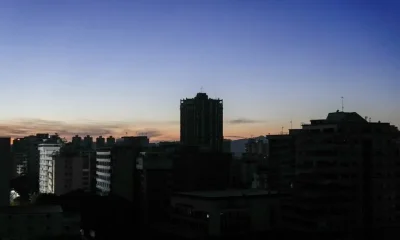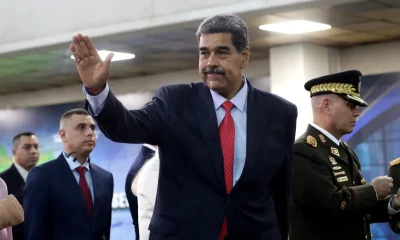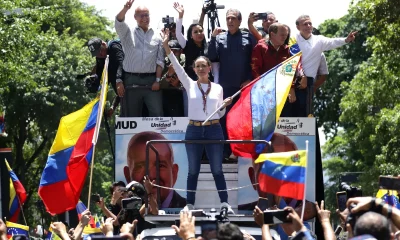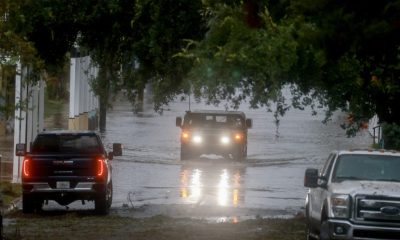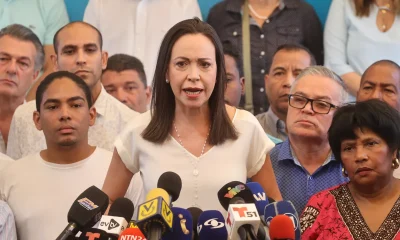International
Suspect ‘got’ $8,000 for killing Paraguayan prosecutor on honeymoon
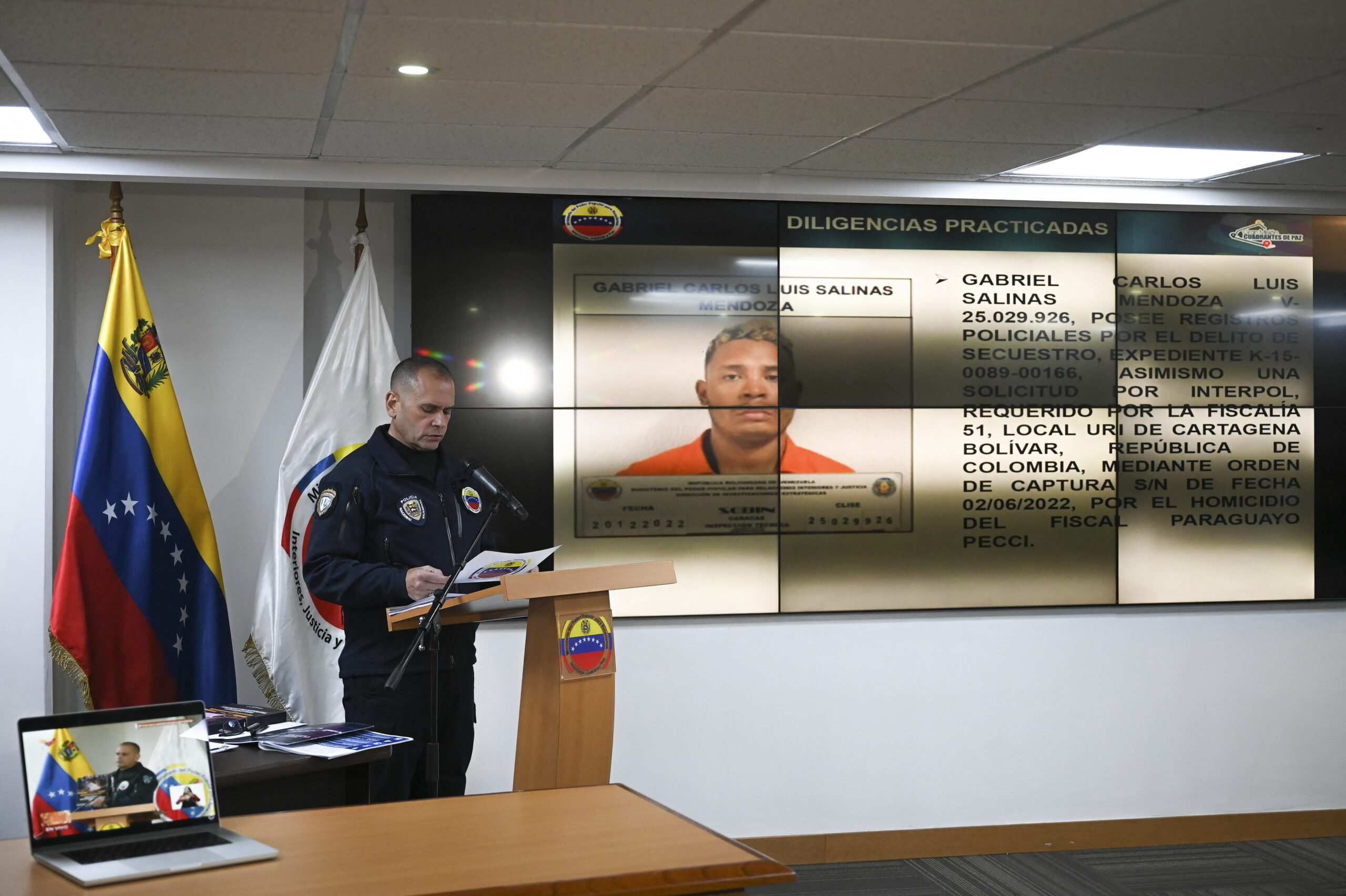
| By AFP |
A suspect in the murder of a Paraguayan anti-drug prosecutor shot dead while honeymooning on a Caribbean island has confessed to accepting $8,000 for the execution-style killing, Venezuela said Thursday.
Venezuela’s Interior Minister Remigio Ceballos shared a video with journalists in which Gabriel Carlos Luis Salinas Mendoza, a Venezuelan citizen arrested in Caracas on Tuesday, appears to confess to his part in the crime.
“We rented a jet ski, we went to Baru beach (in Colombia) and we executed” the crime, Salinas, one of two alleged hitmen, is seen telling interrogators.
Afterwards, “I got $8,000 and came to Venezuela” across the border.
Pecci, 45, was felled by two shots while relaxing on an idyllic island beach with his wife, Paraguayan journalist Claudia Aguilera in May.
The couple got married on April 30 in the nearby city of Cartagena.
Aguilera, who was pregnant at the time, has recounted that two men arrived on the beach on a jet ski or small boat. One approached Pecci, and “without a word,” shot him twice.
Salinas is accused of having driven the jet ski.
He states in the video that he was acting for a man named Francisco Correa, known as “El Monin.”
Ceballos said Salinas would be tried in Venezuela, where the law prohibits extradition to other countries.
The investigation has yet to identify the masterminds behind the crime. The United States has offered a reward of $5 million for information on who is responsible.
Pecci had specialized in organized crime, drug trafficking, money laundering and terror financing.
At the time of his murder, Paraguay Attorney General Sandra Quinonez said Pecci had obtained important convictions in an 11-year campaign against cross-border and drug crime.
Colombia, the world’s largest cocaine producer, is contending with a wave of violence despite a 2016 peace deal that disarmed the FARC guerrilla group and ended a near six-decade civil conflict.
Fighting over territory and resources continues in parts of the country between dissident FARC guerrillas, the ELN rebel group, paramilitary forces and drug cartels, particularly in areas bordering on Venezuela.
For its part, landlocked Paraguay — nestled between Brazil, Bolivia and Argentina — has become an important launchpad for drugs headed for Europe.
Paraguay and Colombia have recently strengthened cooperation in the fight against organized and cross-border crime.
International
Gates Foundation to close by 2045 as Bill Gates pledges to donate $200 Billion

When Bill and Melinda French Gates established the Gates Foundation in 2000, they envisioned an organization that would continue its work for decades after their deaths. But now, Microsoft co-founder Bill Gates says he doesn’t want to wait that long to give away most of his fortune.
On Thursday, Gates announced that he plans to donate “virtually all” of his estimated $200 billion fortune over the next 20 years and will dissolve the foundation on December 31, 2045.
The announcement comes amid deep cuts by the Trump administration to funding for health, foreign aid, and public assistance programs — the very causes the Gates Foundation supports. The shift raises concerns about setbacks in global health research and critical development initiatives.
Gates says he wants to accelerate the foundation’s work in global health and equity, and hopes the move will inspire other billionaires to follow suit. In a blog post published Thursday morning, he emphasized that the foundation’s final phase should serve as a model for large-scale philanthropic impact.
This new pledge builds on Gates’s long-standing commitment to philanthropy. Alongside French Gates and Warren Buffett, he co-founded the Giving Pledge in 2010, which encourages billionaires to donate the majority of their wealth either during their lifetimes or in their wills. The campaign now has more than 240 signatories worldwide.
International
Bill Gates accuses Elon Musk of endangering the world’s poorest children

Bill Gates, co-founder of Microsoft turned global health philanthropist, sharply criticized Elon Musk in a recent interview with The New York Times, saying the tech billionaire is “the richest man in the world and is involved in the deaths of the world’s poorest children.”
At 69, Gates announced that the Bill & Melinda Gates Foundation will cease operations by 2045, and he urged the next generation of billionaires to step up. However, he expressed concern that today’s wealthy individuals are less committed to humanitarian work than they were two decades ago.
He cited Elon Musk as a prime example: “He’s the one who cut the USAID budget. He shredded it — all because he didn’t attend some party that weekend.”
Gates argued that Musk “could have been a great philanthropist,” but instead, “the richest man in the world is now contributing to the deaths of the world’s poorest children.” He pointed to how cuts to USAID have disrupted essential programs fighting HIV, malaria, and polio.
Gates called on the global elite to do more: “It’s not that we’re running out of rich people. There will be more, and they’ll reflect on what AI has done — or hasn’t — and what governments have done — or haven’t.”
Looking ahead, he urged future billionaires to commit to greater philanthropy, especially as his own foundation phases out: “The rich of today should do more. The rich twenty years from now should do more.”
Despite his criticisms, Gates maintained his trademark optimism. He dismissed fears that repeated U.S. administrations will continue cutting humanitarian budgets: “I don’t think there will be administration after administration slashing these things. If we look 20 years ahead, I believe we’ll continue reducing child mortality.”
Gates also expressed faith in artificial intelligence, suggesting it can provide medical expertise in remote regions on par with doctors with decades of experience — potentially even better than what’s available in wealthy countries.
International
VP JD Vance to World Cup visitors: “Enjoy the game, then go home”
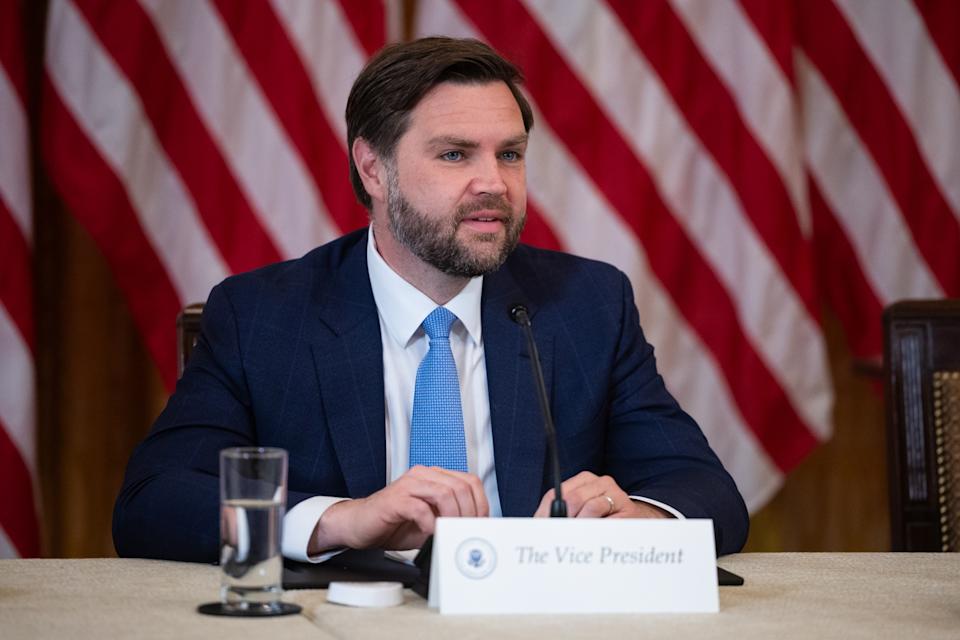
U.S. Vice President JD Vance issued a light-hearted but firm warning to international visitors planning to attend the 2026 FIFA World Cup, which will be co-hosted by the United States, Canada, and Mexico.
“We know we’ll have visitors, probably from close to a hundred countries. We want them to come. We want them to celebrate. We want them to enjoy the games,” said Vance during a press conference on Tuesday focused on the organization of upcoming major sporting events in the U.S.
“But when it’s over, they’ll have to go home,” he added.
Vance, speaking in a joking tone, also mentioned Homeland Security Secretary Kristi Noem, saying, “Otherwise, they’ll have to speak with Secretary Noem.”
The comment came during the first joint working session aimed at preparing for the 2026 World Cup, which will feature 48 national teams and take place across multiple cities in North America.
-
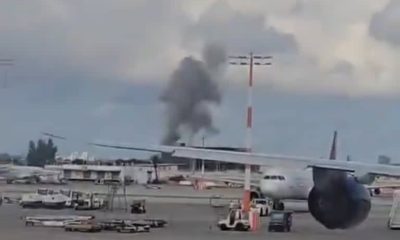
 International4 days ago
International4 days agoHouthis threaten israeli airports, urge airlines to cancel flights
-

 International4 days ago
International4 days agoAmerican Airlines sued after woman alleges sexual assault on flight
-
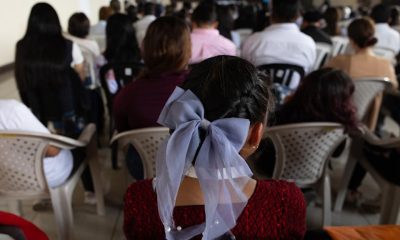
 Central America1 day ago
Central America1 day agoThousands of Guatemalan girls forced into motherhood due to sexual violence
-
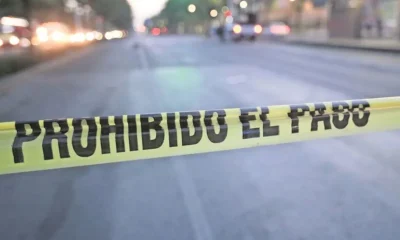
 International3 days ago
International3 days agoSinaloa Cartel faction leader ‘Chuy’ Guzmán Castro detained in Mexico amid rising violence
-
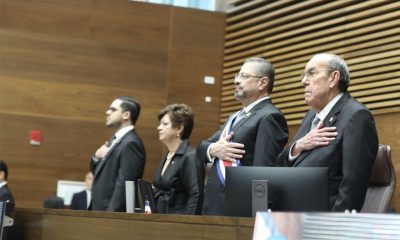
 Central America3 days ago
Central America3 days agoCosta Rica congressional leader warns of authoritarian drift under president Chaves
-

 International3 days ago
International3 days agoProsecutor José Domingo Pérez reinstated in Fujimori corruption case
-

 International3 days ago
International3 days agoSpain approves plan to reduce workweek to 37.5 hours
-

 International3 days ago
International3 days ago“Give me a break”: Trump defends AI image of himself as the Pope
-

 Sin categoría3 days ago
Sin categoría3 days agoPope Francis donated Popemobile transformed into mobile clinic for Gaza’s children
-

 International3 days ago
International3 days agoSheinbaum rejects U.S. military presence in Mexico’s war on drugs
-
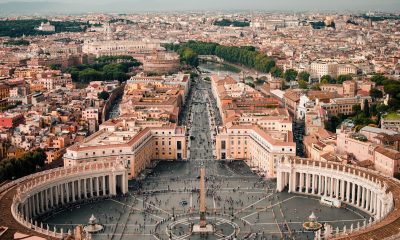
 International3 days ago
International3 days agoSins of the Vatican: Scandals, abuse, and a cardinal’s fall from grace
-
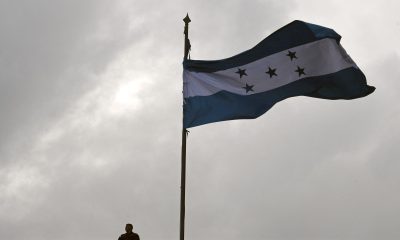
 Central America1 day ago
Central America1 day agoExperts urge action to protect democracy ahead of Honduras elections
-

 International1 day ago
International1 day agoLong wait at the Vatican: experts defend lengthy papal election process
-

 International1 day ago
International1 day agoXiomara Castro’s government vows to protect citizens amid threat reports
-
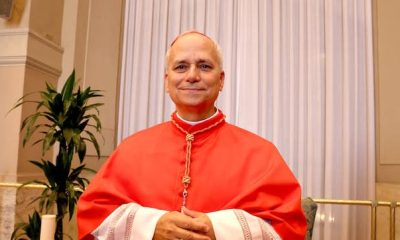
 Internacionales8 hours ago
Internacionales8 hours ago“A great honor for our country”: Trump congratulates Pope Leo XIV
-

 International7 hours ago
International7 hours agoBill Gates accuses Elon Musk of endangering the world’s poorest children
-
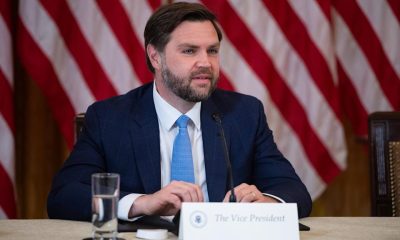
 International8 hours ago
International8 hours agoVP JD Vance to World Cup visitors: “Enjoy the game, then go home”
-

 International7 hours ago
International7 hours agoGates Foundation to close by 2045 as Bill Gates pledges to donate $200 Billion
-
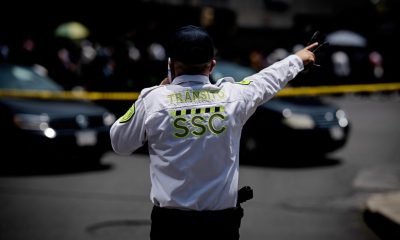
 International8 hours ago
International8 hours agoStrong winds cause stage collapse in Mexico City; seven hurt


















